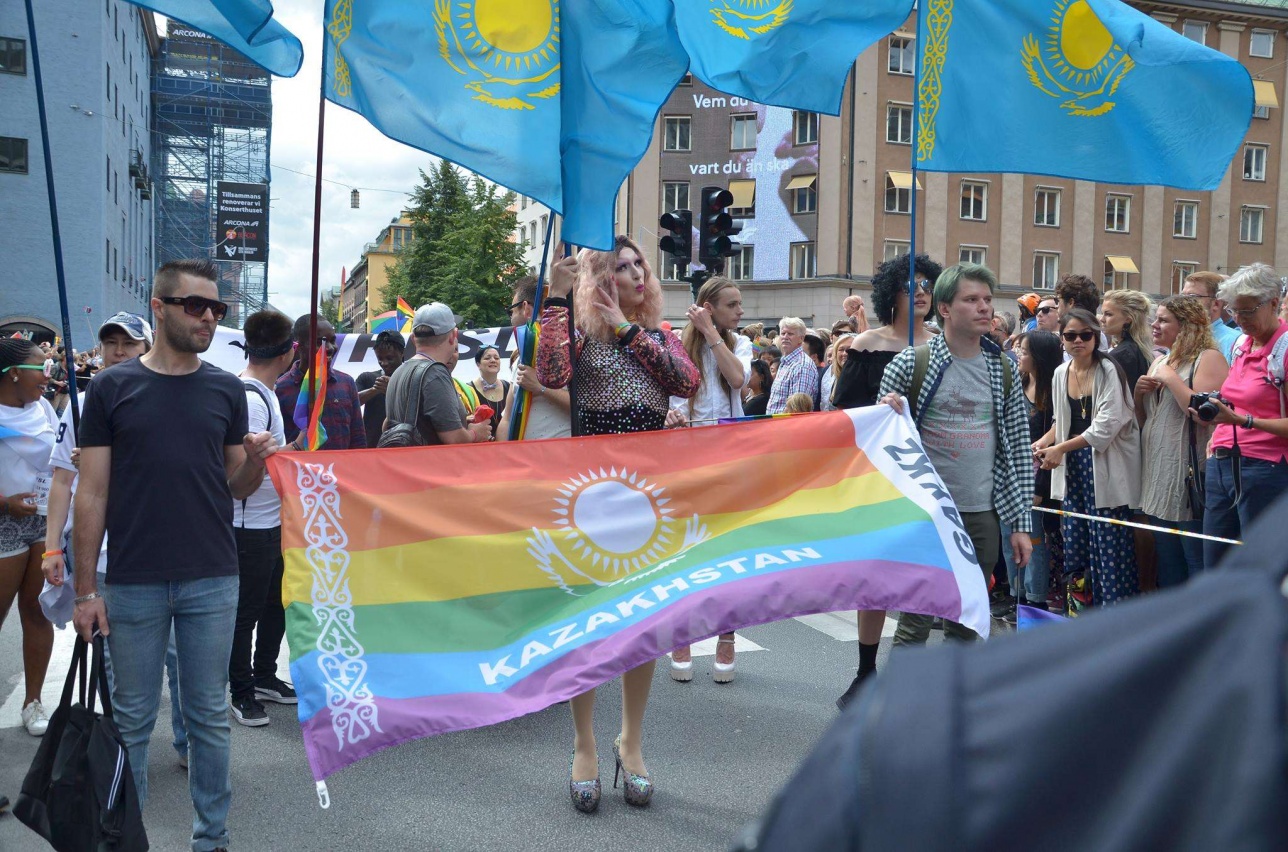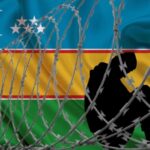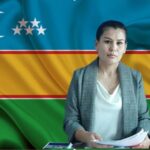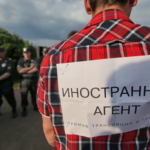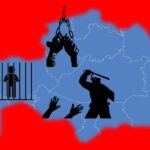A court
on April 21, 2014, ordered the closure of one of Kazakhstan’s few remaining
independent newspapers, Human Rights Watch said today. The order compounds
other measures in recent weeks to tighten controls over freedom of expression
and the media. Kazakh authorities should immediately seek to set aside the
court order prohibiting the Assandi Times from publishing.
The
Almaty court ruled that the Assandi Times, a weekly newspaper with a national
circulation of about 7,500, should cease publication as it was a part of
Respublika, a newspaper that was banned in December 2012. In recent months,
several other newspapers have been suspended or closed down in unrelated cases,
including Pravdivaya Gazeta at the end of February.
“This absurd case displays the lengths to which
Kazakh authorities are willing to go to bully critical media into silence,” said Hugh Williamson, Europe and
Central Asia director at Human Rights Watch. “The European Union and the United States should make it clear that
they will not sit quietly as the Kazakh authorities muzzle what’s left of
Kazakhstan’s independent and opposition media.”
Respublika
and its affiliate newspapers and websites were shut down in December 2012 after
various courts ruled that they constituted a single media entity and that they
“incite(d) social discord” and “propagandize(d) the violent overthrow of
government.” Respublika had covered the prolonged oil workers’ strike in 2011
and the related violent clashes that broke out in Zhanaozen, in Western
Kazakhstan, in December 2011.
The
Assandi Times was not informed of the case against it until April 2, when court
bailiffs came to the newspaper’s office and confiscated all the hard copies of
the paper in the office, Oksana Makushina, a journalist at the Assandi Times,
told Human Rights Watch. The bailiffs cited an April 1 court order suspending
the publication or distribution of the Assandi Times pending the court’s
consideration of a lawsuit to shut it down. Makushina also told Human Rights
Watch that none of the staff had been notified of the lawsuit, or of the April
1 order, so the Assandi Times was not able to defend itself at the initial
hearing.
During
an April 15 hearing, which a member of Human Rights Watch staff attended, the
prosecutor contended that the Assandi Times should be considered the same
entity as Respublika, and shut it down on that basis. The prosecutor said that
several journalists who had worked for Respublika now work for the Assandi
Times, that the Assandi Times’s editorial board has several members in common
with the former Respublika editorial board, and that several of the same
articles had been published in both newspapers. None of this violates the law.
The prosecutor did not present any evidence of wrongdoing.
“Shutting down the Assandi Times because of its
links to Respublika rather than because of specific wrongdoing is clearly an
attempt to punish particular critical views,” Williamson said. “The shutdown order amounts to a de facto ban on the journalists
themselves.”
The
action against the Assandi Times takes place amid a broader crackdown on
freedom of expression and media in Kazakhstan, Human Rights Watch said.
On April
15, police tried to prevent journalists in Astana from covering a peaceful
protest outside the prosecutor general’s office by blocking them from filming
or taking pictures and pushing them away from the scene, leaving Viktor Guzd, a
journalist with the web-based video portal 16/12, with a wound on his forehead.
He told other reporters at the scene who were filming that officers had twisted
his arms and forced him to turn off his video camera.
On April
12, Lukpan Akhmedyarov, the editor-in-chief of Uralskaya Nedelya (Urals
Weekly), an independent newspaper in western Kazakhstan, was quoted in the
media as saying that Internet users in Kazakhstan could not access the
newspaper’s website. Akhmedyarov expressed concern to Human Rights Watch that
the paper may have been targeted after it provided coverage of a forum critical
of Kazakhstan’s membership in the Eurasian Customs Union. After several days,
the website became accessible again.
Journalists
in Kazakhstan have frequently faced defamation lawsuits and heavy fines. In
mid-March, though, prosecutors took the unprecedented step of charging Natalya
Sadykova, an Assandi Times journalist formerly based in Aktobe, a town in
western Kazakhstan, with criminal libel. The charges carry a maximum sentence
of three years in prison.
Media
reports said that a former member of parliament accused Sadykova of libel and
sued her for moral damages, alleging that she had written an article in
Respublika in December 2013 under the pseudonym Bakhyt Ilyasova falsely
implicating him in corruption. Fearing criminal prosecution, Sadykova left
Kazakhstan with her family in early March. On March 17, a warrant was issued
for her arrest. In an interview published on Forbes.kz after Sadykova left
Kazakhstan, she denied writing the article.
“Journalists in Kazakhstan are already under
enormous pressure,”
Williamson said. “But instead of
protecting journalists from harassment and undue restrictions on their
important work, Kazakh authorities are contorting the law to use it against
them.”
Human
Rights Watch and other local and international rights organizations, including
Adil Soz, have called on the Kazakh authorities to decriminalize libel.
Yet the
country’s proposed new criminal code, which passed its second reading in
parliament on April 9, not only retains criminal libel but increases penalties
for the offense. For example, under article 130, part 1, the draft code
introduces a penalty of imprisonment for up to one year and increases the
maximum fine from 200 monthly indices (US$2,270) to 1,000 ($11,350).
The
draft criminal code also introduces stiffer penalties for insulting public
officials, introduces criminal liability for “spreading false information,” and
expands the scope of the vague and overbroad charge of “inciting social
discord,” among other restrictive amendments. The United Nations Human Rights
Committee has expressed concern about provisions in the criminal code on
defamation of public officials and has called on Kazakhstan to bring its
legislation in line with the International Covenant on Civil and Political
Rights.
Each of
these provisions puts journalists and others at risk of criminal prosecution
for investigative reporting into sensitive issues, such as corruption, human
rights abuses, and criticism of the government or high-ranking politicians,
vital functions of the press, Human Rights Watch said.
A new
implementing decree related to Kazakhstan’s state of emergency law allows
censorship during times of emergency. The decree, which went into effect on
April 12, allows Kazakh authorities to review print, radio, and television
material before publication, and to suspend or terminate media publications
during states of emergency with minimal judicial oversight.
On April
11, the Organization for Security and Cooperation in Europe’s representative on
media freedom, Dunja Mijatović, expressed serious concern about these
legislative changes as well as about an amendment to the law on communications
that “might result in undue restrictions of public debate in the media and
access to the Internet.” Mijatović called on Kazakh authorities “to reconsider
these changes.”
“By backtracking on legal guarantees for free
speech, the Kazakh government is undermining one of the basic pillars of a free
society,”
Williamson said. “The authorities should
end their relentless assault on free speech and let Kazakhstan’s people write
and speak as everyone in a democratic society is entitled to expect.”
SOURCE:
HRW
www.hrw.org/news/2014/04/22/kazakhstan–newspaper–closing–blow–free–speech



